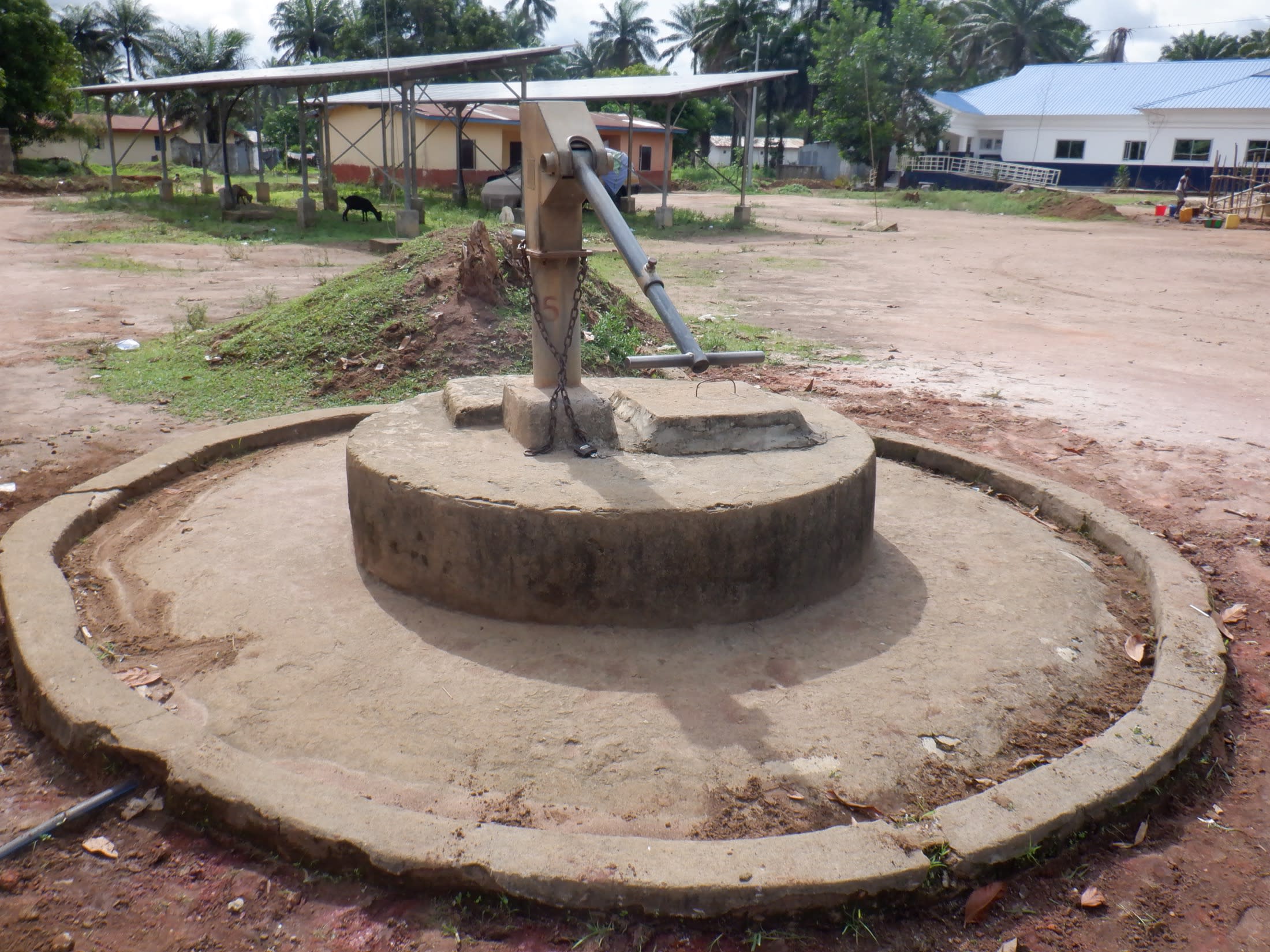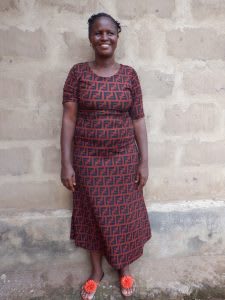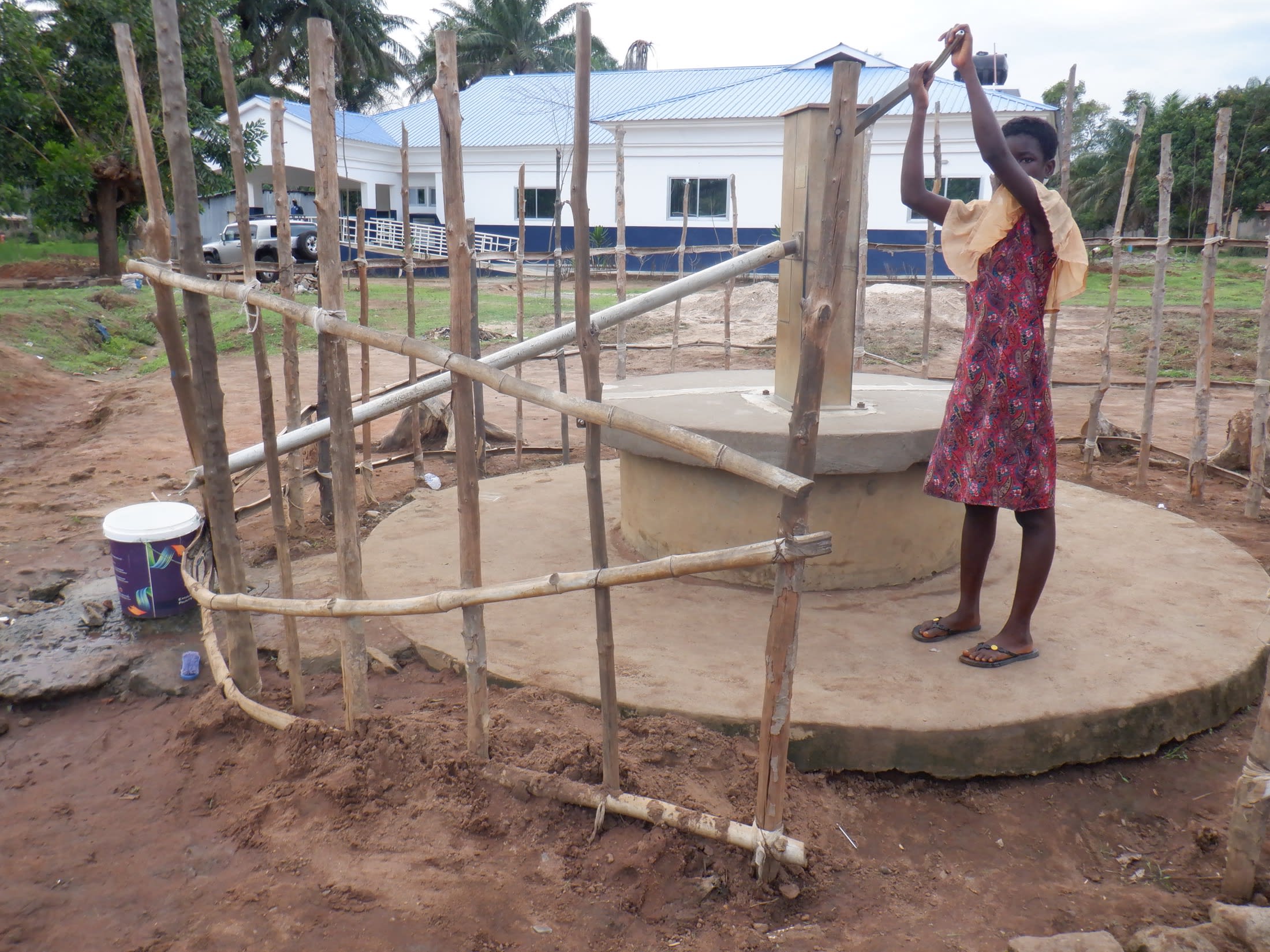The Petifu Junction Health Post serves a large community of 500, but the health post's current dug well is in a weakened state. Because of the water shortage, the healthcare services offered are severely limited.
The center is marked for expansion with the help of another organization, but without water, the buildings will sit empty, and new vital health services like surgeries will not be able to happen.
Overuse of the current well (shown below) causes frequent pump breakdowns and slows the discharge rate causing long lines and delays. When seasonal dryness occurs, the issue is further compounded. The well is in need of rehabilitation and, without repairs, will continue to only provide menial amounts of water and leave people needlessly suffering.

40-year-old midwife Christiana Jillo Will (shown below) finds delivering babies, especially during nighttime emergencies, challenging without sufficient water.

"There is a need for water to ensure proper hygiene and sanitation at the health center," said Christiana. "It is not easy to provide good health service without the use of clean and adequate water.
"The water well at this health center is not strong [enough] to provide enough water for us throughout the year. This well gets low water during the dry season, and the pump frequently breaks down."
But taking the extra time to travel to the community well is not feasible for Christiana when she is trying to deliver vital health services, so she often must rely on what water patients' families can collect, or do without - a problem that could have fatal consequences for weakened patients.
The staff and patients are not the only ones suffering due to the well's inability to provide sufficient water year-round. Local community members like 13-year-old Aminata depend on the well to meet their daily water needs, and when the well is not functioning, they are forced to search for water from other sources, too.
"I help my mother to fetch water for the house every day," said Aminata. "In the morning, I fetch water from the well at the health center to wash dishes and to bathe before going to school. Sometimes it [is] not easy to fetch a single bucket of water to my house when the well is not working."

When Aminata (collecting water at the community well in the photo above) is unable to collect water from the health post well, she must go in search of water elsewhere. "When the well is not providing water, I would go to the others far away from the health center to fetch water."
The faraway wells are overcrowded, so Aminata wastes time waiting in long lines and is inevitably late for school.
"There was a time I stayed long at the well waiting to fetch water in the evening," said Aminata. "I returned to the house very fatigued and could not read my school notes when I had to write an examination the following day. I struggled on writing the exam on that day, [and] at the end of it I could not meet the average score."
A rehabilitated well will strengthen health services and improve the daily lives of the community members living in Petifu Junction and hopefully give them healthier, happier futures.
Here’s what we’re going to do about it:
Well Rehabilitation
The well marked for this overhaul is dry for a few months every year and needs major work to supply adequate, clean water to the community year round. The pump will be removed, and a hand auger will be lowered inside and powered by a drill team. This hand auger will allow the team to drill several meters deeper to hit a sufficient water column that will ensure the well supplies water throughout all seasons.
As the team drills, casing will be installed, transforming the bottom of this hand-dug well into a borehole. PVC piping will connect this lower system directly to the pump, a construction that we know will also improve the quality of water.
Once this plan is implemented, everyone within the community will have access to safe drinking water in both quality and quantity, even through the dry months.
Hygiene and Sanitation Training
There will be hygiene and sanitation training sessions offered for three days in a row.
After our visit, the hygiene and sanitation trainer decided it would be best to teach community members how to build a tippy tap (a hand-washing station built with a jerrycan, string, and sticks). They will use these tippy taps for handwashing demonstrations, and will also teach about other tools like dish racks and the importance of properly penning in animals.
These trainings will also strengthen the water user committee that manages and maintains this well. They enforce proper behavior and report to us whenever they need our help solving a serious problem, like a pump breakdown.

 Borehole Well and Hand Pump
Borehole Well and Hand Pump
































